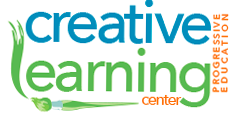
Admissions
Forms & Parent Handbook
Online forms for school year 2024-2025
Enrollment Application
Preschool, Primary, and Enrichment Classes
Parent Information
Required State Forms
Student Information Form Packet (5 Forms)
Form 1 of 5 – Family Information
Form 3 of 5 – Developmental History
Admissions Policy
At the Creative Learning Center, the admissions process begins in the fall prior to the year of enrollment. The admissions process is designed to help us to know you and your child and to assist you in getting to know our school.
The admissions office arranges interviews for families after we receive your COMPLETED application form along with the application fee of $50.00. We will contact you to set up an appointment to come see the school. During this appointment, one of the teachers will interact with your child to make an informal assessment of your child’s developmental level. The Director will explain our philosophy and programs, followed by a tour of our facility. By the end of the process, all of your questions will be answered.
If your child is applying to our primary learning community, we have a two-step admission process. The first step is the initial interview with an informal assessment of your child. The second step in the admission process consists of a morning visit for your child along with a developmentally-appropriate assessment. This 3-hour visit will be scheduled for a separate date from the parent tour and interview and will allow your child the opportunity to participate in the class activities.
Following your visit and interview, the Admissions Office will determine if we have an appropriate space available for your child. Priority enrollment is given to families who are already enrolled in our school. Our classes are grouped heterogeneously and we make sure that each class has a suitable balance of ability levels. There are also spaces designated for students who wish to combine morning preschool classes with an enrichment program or attend our full day preschool program.
If your child is accepted to our school, you will receive a legal contract that must be signed by the parents or guardians and returned within a designated time period. A deposit is given along with the signed contract to demonstrate your intention of fulfilling the contract obligations. Tuition is divided into four payments that are due on June 1, October 15, January 15, and March 15 of the school year. A parent handbook that fully explains all aspects of our program is available for incoming students.
How do I select a preschool for my child?
Selecting a preschool is an important process, one in which you should invest some time and effort. With the current brain research and ongoing educational research, there is solid evidence that a child’s early years are the most important time in your child’s brain and overall development. When looking at a preschool, it is important to have a clear understanding of the school’s educational philosophy and curriculum. Some important questions to ask:
1. Does the environment seem conducive for your child? Can you imagine your child thriving in the environment? Does the environment feel warm, nurturing, and supportive? Do the learning activities seem exciting? Is there a balance of active and quiet activities?
2. Are the teachers certified in early childhood education with a strong understanding of child development? Is there a balance of teacher-directed and child-directed learning?
3. Does the school encourage creative expression through art, drama, cooking, and creative movement? What kind of art work do you see hanging in the classrooms? Are the projects process-oriented or product-oriented? When children are offered open -ended materials and are free to create, the projects will clearly express their individuality.
4. Do you see a wide variety of materials arranged in organized learning centers? Are there blocks, dramatic play props, science materials, listening centers, a children’s library, art materials, computers or iPads, puzzles and manipulatives? Each of these centers develop a different area of your child’s brain and are all essential for your child’s overall development.
5. Does the school have a nice balance of play time and small group work with certified early childhood educators? Play is essential because it encourages children to develop social-emotional skills and make connections to the content being taught. There should be time each day when teachers are working with children individually or in small groups, fostering the children’s cognitive development.
6. Does the curriculum include a developmentally-appropriate literacy and math program that challenges children to develop critical thinking skills? Are children challenged yet supported in their individual work? Young children learn best when they are engaged in active learning with materials that they can manipulate.
7. What is the student/teacher ratio? Are the classes large enough to allow children to form various social connections, but small enough to allow the teachers to focus on each individual’s growth?
8. How is information communicated to the parents? Do parents receive regular newsletters? Are there opportunities for parents to speak with the teachers at conferences and on a regular basis? Are parents welcome members of the school community?
9. How does the school address social-emotional issues? Are the teachers supporting the children’s efforts in conflict resolution? Do the teachers use choices and encouragement to build children’s developing self-regulation skills?


